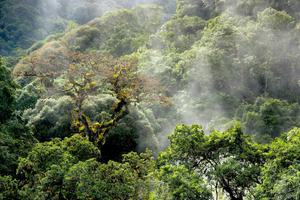Temperatures are rising faster than many species can evolve to cope with them, posing a long-term threat to their survival. But new research suggests an evolutionary shortcut to adaptation: breed with closely related species that can better stand the heat.
For a new study, scientists gathered samples of tropical rainbowfish from rivers in northeastern Australia, finding that upland rainbowfish, which prefer cooler waters, had crossbred with lowland rainbowfish, which prefer warmer waters. Modeling suggests the resulting hybrid would be better adapted than its upland relatives to a changing climate.
The findings demonstrate that crossbreeding “can contribute to natural evolutionary rescue of species threatened by climate change,” Luciano Beheregaray, a biologist at Flinders University and a coauthor of the study, said in a statement. The research was published in the journal Nature Climate Change.
The study notes that upland rainbowfish occupy the last remaining cool tropical mountain rainforest in mainland Australia. These fish have nowhere to go to escape from rising water temperatures, meaning crossbreeding could prove critical to their survival. As such, the authors argue that hybrid rainbowfish “should be afforded the equivalent conservation status as pure populations.”
ALSO ON YALE E360
Assisting Evolution: How Far Should We Go to Help Species Adapt?




